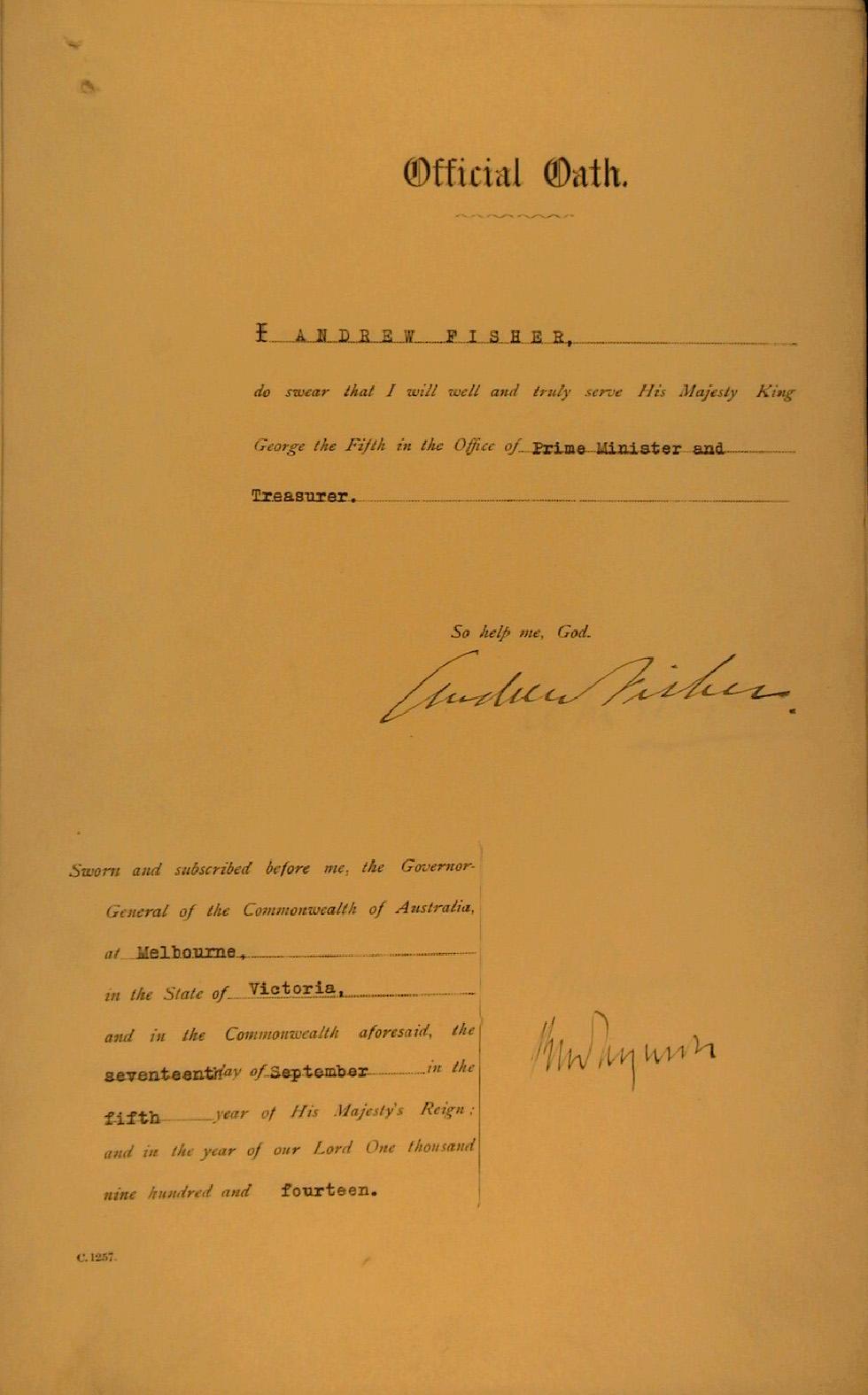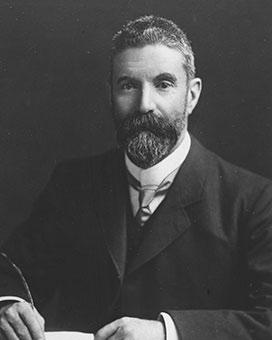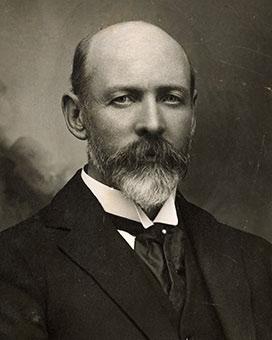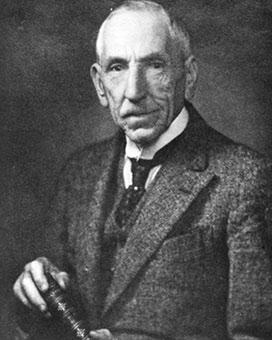Of the 6 federal elections Andrew Fisher contested, the most notable was in 1910 when voters changed the government for the first time since Federation – the 1st elections had all returned the sitting prime ministers. Fisher was thus the 1st Australian prime minister to achieve office through an election and his government the 1st to hold a majority in both Houses.
30 March 1901
Fisher won the Queensland seat of Wide Bay, the federal electorate that included his home town of Gympie. He was one of 22 Labor members elected to the 1st parliament, 14 of them in the House of Representatives. Labor gained 2 more members when Frank Tudor (Yarra) and King O’Malley (Tasmania) joined the Labor Party.
Edmund Barton led the Protectionist government, returned with 31 seats – 3 more than achieved by the Opposition, George Reid’s Free Trade Party. In the Senate, Free Trade dominated with 17 seats to the Protectionists' 11, and Labor's 8.
16 December 1903
Labor made substantial gains in this election, returning 25 members in the House of Representatives, and winning 10 of the 19 Senate seats contested. Fisher held his Wide Bay seat comfortably. With the support of the Labor members, Alfred Deakin remained prime minister of a House almost evenly divided between the 3 parties.
12 December 1906
Labor contested this election advocating 'new protection' and a land tax (one of Fisher's priority reforms). Alfred Deakin continued to govern, though with an unstable majority in a House with 16 Protectionists, 4 'Independent Protectionists', 26 Labor members and 27 Anti-Socialists (formerly George Reid’s Free Traders). The other 2 seats were won by a 'Western Australia' party. The new Senate comprised 13 Labor, 6 Protectionists, 15 Anti-Socialists and 2 Independents.
13 April 1910
Perhaps Fisher's greatest triumph was this electoral landslide that returned a Labor majority in both Houses of parliament. Labor won 43 of the 75 seats in the House of Representatives, and all 18 seats contested in the Senate. Labor thus held 23 of the total 36 Senate seats.
A referendum on 2 measures to amend the Constitution was held with this election. The 1st, to institute a per capita Commonwealth grant to the States, was lost. The provision for the Commonwealth to take over post-1901 public debts incurred by the states was successful.
31 May 1913
The amalgamation of the Anti-Socialists with the Deakinite Liberals meant that a Liberal government led by Joseph Cook won office by 1 seat at this election. The new House of Representatives had 38 Liberal and 37 Labor members. Labor retained a majority in the Senate, with 8 Labor and 11 Liberal senators elected.
5 September 1914
Fisher's 6th federal election was a second resounding triumph. Labor returned 42 members to the lower House and 31 to the Senate. This was the first double dissolution election for the federal parliament. It was also Fisher's last election, as he retired from parliament the following year.

Andrew Fisher's Official Oath on taking office as Prime Minister for the 3rd time after the Labor Party won the 1914 election. NAA: A5447, 18, p. 2
Sources
These brief election results relate only to this Prime Minister. They are drawn from the online sources below, where further information can be found.
Australian Electoral Commission: Election results
University of Western Australia: Australian Government and Politics Database





